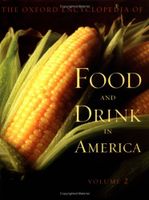Label
All
0
Clear all filters
🌷 Spring savings – save 25% on ckbk Premium Membership with code SPRING25
Street Vendors: Restrictions
Appears in
Published 2004
A characteristic of street vending in America is the quantity, variety, and antagonistic quality of municipal regulations. Restrictions on street vendors are in effect worldwide, but in third world countries regulations have been tempered by the sheer numbers of people who depend on vending for their livelihood. Officials in America have been heavily influenced by health and hygiene reforms and by the power of fixed-location business owners who influence city government.
Restrictions on food selling may take the form of stringent and unrealistic requirements for storage, hot and cold running water on a cart, tent or cover over the food, health permit, long lists of forbidden foods, and attendance at food preparation classes. Chicago is widely known as one of the most restrictive cities in America, whereas New York is celebrated for the variety and quantity of food available from street vendors (with restrictions waxing and waning according to the current mayor). Mid-size cities often appreciate food vendors for ambiance but carefully restrict the activity and appearance of food carts.
Become a Premium Member to access this page
Unlimited, ad-free access to hundreds of the world’s best cookbooks
Over 150,000 recipes with thousands more added every month
Recommended by leading chefs and food writers
Powerful search filters to match your tastes
Create collections and add reviews or private notes to any recipe
Swipe to browse each cookbook from cover-to-cover
Manage your subscription via the My Membership page
Best value
Part of
Advertisement
Related Recipes
-
-
-
-
Related Reference
-
-
-
-
Advertisement
The licensor does not allow printing of this title



